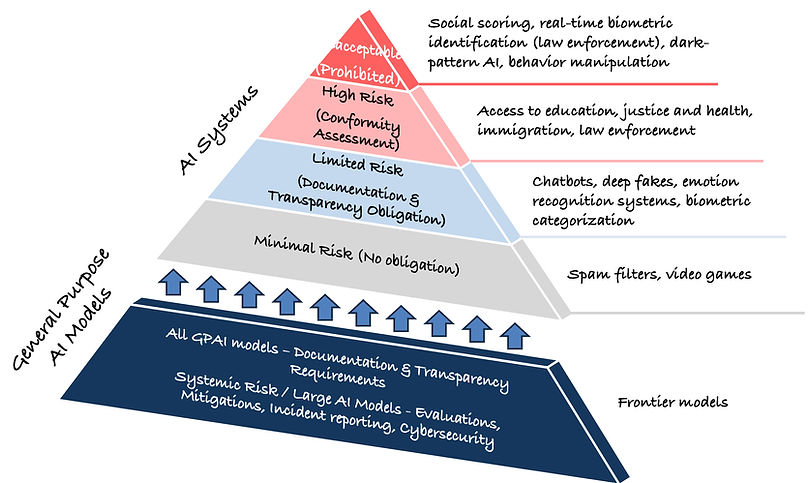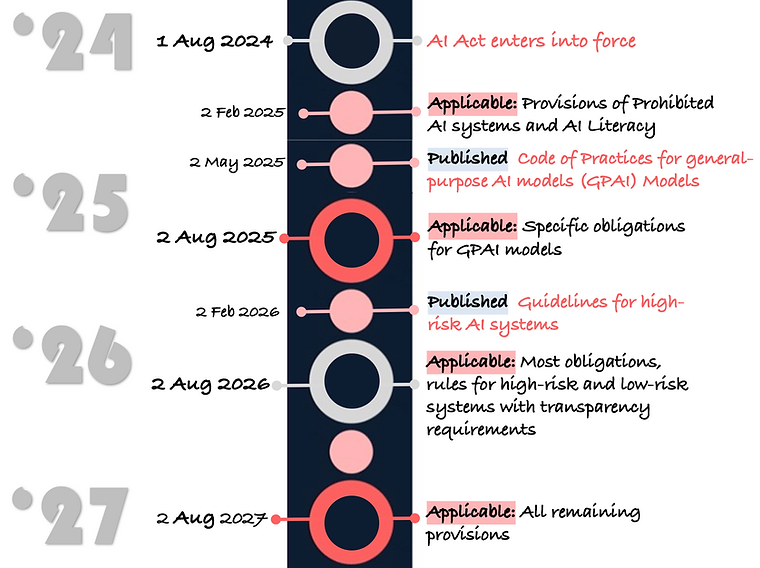EU AI Act
Balancing Technological Progress and Ethical Responsibility

The Act
Artificial Intelligence (AI) technologies are reshaping industries, economies, and societies. However, their rapid proliferation has sparked concerns about misuse, bias, and safety. The EU AI Act emerges as the world’s most comprehensive legislative framework for AI, striving to harmonize innovation with stringent safeguards. It reflects a human-centric approach, promoting trustworthy AI systems that align with European values.
Key Features
Risk-Based Classification
-
Unacceptable Risk: Prohibited AI practices include manipulative techniques, social scoring, and biometric systems that unlawfully infringe on privacy.
-
High-Risk AI: Regulated under strict requirements, these systems cover areas like law enforcement, critical infrastructure, and healthcare.
-
Limited Risk: Lighter transparency and documentation obligations for low-risk systems like chatbots.
-
Minimal Risk: No restrictions on minimal-risk systems like spam filters.
Obligations for Providers and Deployers
-
Providers bear primary responsibility for compliance, ensuring robust risk management, transparency, and adherence to safety standards.
-
Deployers must follow guidelines for ethical deployment, with additional requirements for high-risk systems.
Regulation of General Purpose AI (GPAI)
-
GPAI providers must document model capabilities, comply with copyright laws, and publish training data summaries.
-
For systemic risk GPAI models, additional evaluations, adversarial testing, and cybersecurity measures are mandated.

Core Principles
The core principles of the EU AI Act serve as the foundation for fostering innovation while ensuring safety, transparency, and adherence to fundamental rights across AI systems.

Timelines
The EU AI Act has been developed and implemented through a structured timeline that reflects the urgency and importance of regulating artificial intelligence. Below is an overview of key milestones and deadlines:

Penalties & Fines
The EU AI Act establishes a robust enforcement mechanism, including significant penalties for non-compliance. Fines can reach up to €35 million or 7% of the global annual turnover of the non-compliant entity, whichever is higher.

Getting ready
With the EU AI Act's transformative impact on AI regulation, preparing early is critical. Proactive readiness assessments and tailored compliance strategies will save organizations time, cost, and complexity down the line.
Evaluate and Classify AI Systems
Catalog and Document AI Assets
Establish Governance and Risk Management Frameworks